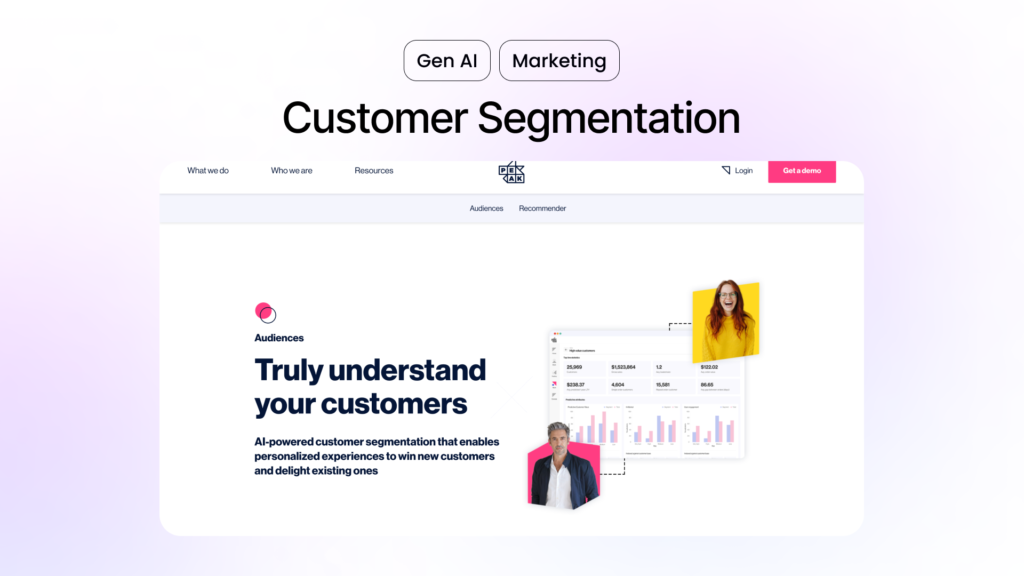Artificial Intelligence (AI) has emerged as a strategic tool for digital marketing specialists, data analysts, and website builders, helping them streamline operations and deliver better customer experiences. However, its impact extends beyond operational efficiency and touches the core of brand credibility. As many business owners rush to leverage AI, the wrong approach can severely harm their brand image.
A 2024 survey revealed that over 80% of marketers globally use AI in their campaigns. Despite its numerous benefits, AI is not flawless, and its misuse can damage a brand’s reputation. Another study found that 30% of respondents in North America, South America, and Europe believe generative AI poses significant threats to brand safety.
The key to maintaining brand credibility lies in the ethical and strategic use of AI in business, whether for marketing, customer support, or data analysis. This guide explores the effects of AI on brand credibility and provides best practices to mitigate adverse impacts.
What is Brand Credibility? How Does AI Impact It?
Brand credibility is the extent to which a brand is perceived as trustworthy, competent, and reliable in meeting customer needs. It is essential to brand equity, which is the overall value a brand adds to its products or services. In the digital age, brand credibility is more crucial than ever, as it significantly influences consumer decisions and loyalty.
The Role of AI in Enhancing Brand Credibility
AI tools enable business owners to transform brand credibility in several ways. AI-driven algorithms help data analysts predict consumer trends by scanning vast datasets, allowing brands to customize products and services to individual customer needs. AI chatbots offer personalized, instant customer support, boosting satisfaction and loyalty.
Additionally, AI can identify and mitigate potential risks to brand reputation by monitoring online conversations and performing sentiment analysis. AI-driven marketing campaigns benefit from optimized messaging and targeting, personalized interactions, proactive risk management, and data-driven strategies. Collectively, these factors strengthen brand credibility in a competitive market.
How Can AI Improve Your Brand Credibility?
1. AI Analyzes Consumer Preferences
Digital marketers and data analysts extensively use AI to enhance brand value by evaluating customer preferences. In the information age, data flows from numerous sources, and intelligent AI algorithms sift through vast volumes of data to extract valuable insights. Analysts use these tools to understand trends and adjust their strategies to better serve customers.

Businesses employ predictive modeling and AI-driven recommendation systems to tailor their offerings to individual consumer preferences, creating personalized and engaging brand experiences. AI-powered tools analyze:
- Customer purchasing habits on online platforms
- Consumer behavior in online shopping
- Interactions on social media
- Patterns of consuming online content
Established virtual retailers like Ubuy use advanced analytics tools to leverage data, demonstrating how leading eCommerce platforms use AI to provide better value to customers.
With a strategic approach, businesses can align their values with audience expectations. AI tools enable the development of strategic visual branding and messaging tactics to drive marketing efforts.
Developing Strategic Brand Stories with AI
AI can also be instrumental in crafting compelling brand stories. Generative AI, now central to content generation, helps forward-thinking businesses establish a strong identity. Successful brands harness AI to create engaging content in several key ways:
- Personalized Content Creation: AI uses inputs related to customer segments and demographics to craft relevant, emotionally evocative stories. Data analytics provide the necessary insights, which generative AI tools then transform into personalized content.
- Optimized Messaging for Marketing: AI tools optimize messaging for different platforms, enabling marketers to maintain a consistent brand voice and image across various channels.
- Alignment with Brand Values: AI ensures consistency in brand messaging, reinforcing established brand values through customized content creation, making the brand’s voice recognizable in competitive markets.
- Speed and Efficiency: AI streamlines content creation by automating tasks such as generating drafts and providing suggestions, saving time and resources for digital marketers.
Successful digital marketers and content creators strategically leverage AI to engage their audiences with relevant content, demonstrating its effectiveness in modern branding efforts.
3. AI in Sentiment Analysis
AI-powered brand sentiment analysis has become essential for brand management. Customer opinions and feedback online significantly influence your brand’s reputation. Digital marketers use AI-driven sentiment analysis tools to categorize customer sentiments as positive, neutral, or negative. Identifying and addressing consistent negative feedback is crucial, and AI tools help marketers detect and respond to these issues promptly, mitigating potential damage.
AI-powered sentiment analysis offers several advantages:
- Real-time Monitoring: AI tools provide real-time insights into customer sentiments, enabling brands to respond quickly to emerging issues.
- Comprehensive Coverage: These tools can monitor a wide range of online platforms, including social media, blogs, forums, and review sites.
- Actionable Insights: AI-driven sentiment analysis provides actionable insights that help brands improve their products, services, and overall customer experience.
By leveraging AI for sentiment analysis, brands can maintain a positive reputation, build trust with their audience, and enhance their credibility.
Risks of AI on Brand Credibility
1. Lack of Personal Touch
While automation and AI can streamline operations, maintaining an emotional connection with customers is crucial. Overly robotic interactions can alienate your audience.
For example, using generative AI to create blogs without personalization may result in content that lacks appeal and contains inaccuracies, harming your reputation.
Similarly, in customer support, relying solely on chatbots can feel impersonal. Customers often prefer human interaction for resolving issues. Therefore, forward-thinking businesses complement AI chatbots with human support to ensure a balanced, personalized customer experience.
2. Concerns Over Privacy
The use of AI in data analytics requires accessing vast amounts of consumer information, which raises significant privacy concerns. Customers expect their data to be handled with utmost confidentiality. Any breach or misuse of personal data can lead to severe trust issues and damage a brand’s credibility irreparably.
Therefore, businesses need to implement robust data protection protocols and ensure compliance with privacy laws, thereby instilling confidence amongst their customers.
3. Technical Failures
Despite the advancements in AI technology, it is not immune to technical failures. System glitches, software bugs, or any unexpected malfunction can disrupt operations and lead to negative customer experiences.
Moreover, reliance on AI without adequate human oversight can exacerbate these issues, resulting in delayed resolutions and customer dissatisfaction. Accordingly, businesses must have contingency plans and backup systems in place to promptly address any technical setbacks, preventing long-term damage to brand credibility.
4. Strategies for Mitigating Risk
To mitigate the risks associated with AI on brand credibility, businesses should adopt several strategic measures.
First, striking a balance between automation and human interaction is essential. AI tools should enhance customer service, not replace the human touch completely.
Secondly, prioritizing data privacy and investing in secure, transparent data management practices will help build customer trust. Regularly monitoring and maintaining AI systems to address technical issues swiftly will also prevent potential disruptions.
Lastly, continuously improving AI algorithms and incorporating customer feedback will ensure that AI applications remain effective and customer-centric. By employing these strategies, businesses can harness the benefits of AI while safeguarding their brand integrity.
AI’s Impact on Brand Credibility
AI is a powerful tool that can significantly enhance brand credibility when used ethically and strategically. By analyzing consumer preferences, developing strategic brand stories, and leveraging sentiment analysis, businesses can create personalized and engaging experiences that build trust and loyalty with their audience.
However, it’s essential to recognize the potential risks associated with AI and take proactive measures to mitigate them. By following best practices for ethical AI use, businesses can harness the full potential of AI while maintaining a positive and credible brand reputation.
As AI continues to evolve, its impact on brand credibility will only grow. Businesses that embrace AI responsibly will be well-positioned to thrive in an increasingly competitive market, delivering exceptional value to their customers and building strong, trusted brands.
Ready to explore how AI can transform your brand credibility? Sign up for Jasper for free and discover the potential of AI-driven strategies firsthand.







